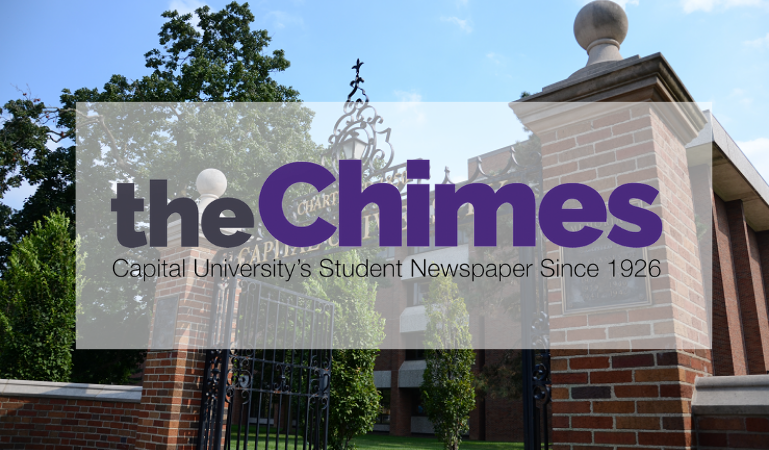Op-Ed by Greyson Van Arsdale, sophomore journalism and film major
In a recent article published by The Chimes about housing changes for the upcoming 2019-2020 school year, included was an explanation on the mammoth $3,000 increase on Capital Commons apartments, bringing the overall total change to university housing to a 6 percent increase. But, as happens every year, every building on campus is getting more expensive to live in, despite increasingly worse conditions.
But if you wisely think it would be better for your wallet to live off-campus for the next school year, good luck – chances are you’re on some kind of financial aid, like 99 percent of all students at Capital. According to the article, your financial aid package changes based on residency status, and the university actively prioritizes people who live on-campus. This is the explanation as to why:
“Studies show that students tend to do better in a living and learning environment that supports academic and personal development,” Director of Financial Aid John Brown said in an email to the Chimes. “Given that, Capital invests more need-based tuition dollars for students living on campus.”
Brown is – technically speaking – correct. According to some studies that have been done, students who live on campus tend to do better academically than those who live off campus. While there is likely some true correlation there, as on-campus students have more constant access to study spaces and are surrounded by other students, studies on this topic are marred by a confounding factor – poverty.
In today’s academic world, poverty is the biggest obstacle to student success. Poor students tend to struggle with transportation, work long hours at exhausting jobs, and have trouble concentrating because of hunger. Poor students are also more likely to live off-campus, because it’s almost always the cheaper option. And though it’s largely invisible to the naked eye, studies suggest that as many as 1 in 2 college students are ‘food insecure’ – meaning they lack consistent access to affordable, nutritious food. About as many are housing insecure or homeless.
This is a vicious cycle being perpetuated by colleges around the country, Capital included. Students can’t afford to live off-campus because they’ll lose financial aid, and get poorer by staying on campus as housing prices steadily rise.
We also have to address the fact that on-campus housing is simply not worth the price, with renovations or without. A Saylor-Ackermann double room costs $5,280 for nine months, or roughly $586 per month per person.
But even that price differential pales in comparison to the newly jacked-up prices of Capital Commons. The price to live in a double there for the 2019-2020 school year is a whopping $8,268 per person – equivalent to $918 per month.
Even with the renovations listed, Capital Commons will not come close to being worth that price in Columbus’s housing market. Just for perspective, in Columbus, paying $900 for an apartment means you could live at ‘The Highpoint’ in the uptown district, in a 1-bedroom apartment with your own washer and dryer, and access to the building’s gym, clubhouse, and private pool. It would be laughably easy to save money on rent living off-campus, as well has having better living conditions.
But you can’t, because then your financial aid package would drop, even though re-evaluating based on residency status is on a foundation of dubious-at-best science.
Student poverty is a growing issue across the country. Anywhere from 30 to 50 percent of all college students in the United States cannot consistently afford food. 36 percent of students at four-year institutions are housing insecure, and 9 percent are homeless. These are institutional problems that are creating whole generations of students that will be in poverty for the rest of their lives. Whether it’s the 30 percent price increase on Capital Commons or the 3-4 percent increase on residence halls, university policies like the ones at Capital set students up for failure, not success.
A Change.org petition created by Capital student Kathryn Poe, which before being turned into the administration had gained 1100 supporters, opposes the new changes and (among other demands) calls for lowering the housing prices as well as introducing fee waivers for students that fall below the poverty line. The administration in light of this reportedly agreed to a discussion about lowering housing costs.
It is crucial that all students take an active part in this process – for lowering housing costs and to end residence-based financial aid cuts that perpetuate student poverty. A signed petition is not a win. The agreement to a discussion is not a win. These things are steps in a better direction, for a Capital that works for all – but we must be in this for the long haul, or we will continue to endure yearly price hikes with no improvement in living standards. Make no mistake, the pushback against these price hikes represents a pushback against a nationwide phenomenon that puts all students at risk, and we have a world to win.

